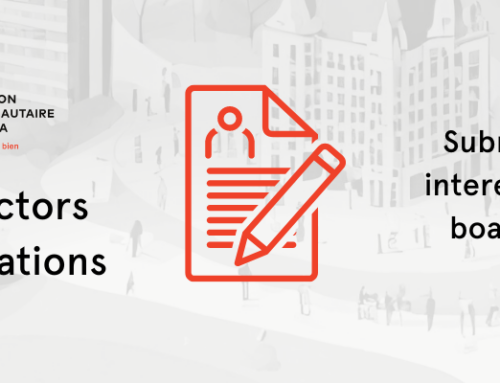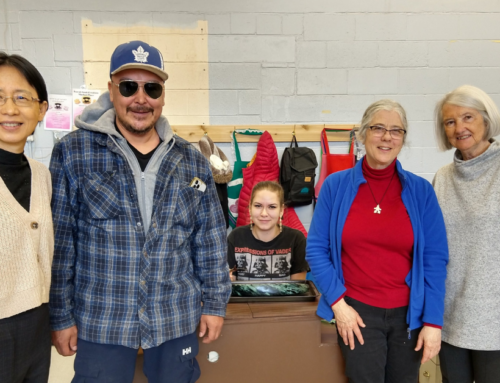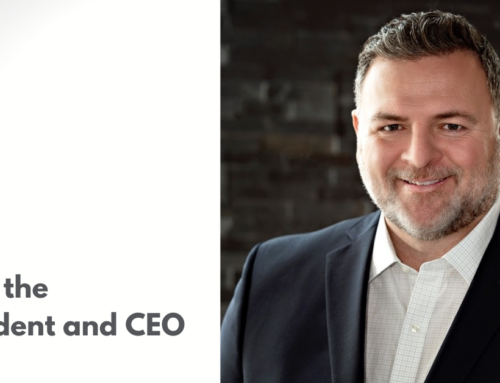Ottawa, ON – June 5th, 2017: If you work in the charitable sector, chances are you know the value of grant writing or you have written grant proposals yourself. While there is no specific science to writing winning proposals, there are some actions you can take to increase your chances of being successful and doing that special victory dance!
On May 24th, about 40 individuals from Ottawa’s charitable sector gathered at the Hintonburg Community Centre for Meet the Funders. The professional development session was organized by the Ottawa Chapter of the Association of Fundraising Professionals to provide individuals working with charitable organizations with tips on how to prepare a strong proposal. Combined, the organizations represented on the panel make available millions of dollars every year to charities across the Ottawa area.
Presented in a question and answer format, the session touched on many aspects of the grant writing process, from relationship building to evaluation. While the following tips may seem obvious, funders tell us they are often overlooked. Here are 10 tips our panel members shared that can increase your chances of success.
- Give yourself time to plan the grant-writing process. Writing a grant at the last minute is a sure-way to fail. Allow yourself enough time to look over funders’ criteria , clearly articulate your objectives and explore possible partnerships.
- Build a relationship with your funder. Your funder is a partner in your organization; therefore, it’s important to treat them that way, not just as a provider of money. Good relationships take time and require ongoing engagement.
- Talk to your funder. Think of the funder as a partner in your process, not the organization looking to stop you from getting the money or simply cutting the cheque. Call your funder early in your planning process to discuss ideas, ask questions, or discuss possible partnerships.
- Align your project with the funder’s impact goals and strategies. This information is usually available on their website or can usually be obtained by contacting the funder. See No. 3!
- Read the funder’s information. Most funders have a website with useful information like deadlines, strategic priorities, funding criteria, tips, forms, etc. It may seem overwhelming at first so remember No. 1!
- Talk to others about their granting successes and failures. You might be surprised who is willing to help you. Learning from others and your community should be part of your ongoing evaluation and feedback process. Also, give yourself permission to fail, but make sure you learn from the experience.
- Articulate your case simply, clearly, and with a solid solution. Grant reviewers read many proposals and don’t necessarily know about your organization and your needs. Consider getting someone outside your organization to review your proposal with a focus on these points.
- Collaborate with others. This point is important enough to mention again. Funders often read proposals from different organizations trying to tackle similar issues. Success in the not-for-profit sector often comes from working together, so consider who might be a good partner.
- Consider how the donor profile and donation behaviors are changing. There are important changes taking place in and outside the sector that may impact your charity, such as the popularity of non-charitable online platforms and the lack of loyalty to a specific organization among millennials. Learn about these trends, stay relevant to donors and create new ways to create meaningful engagement in your community.
- Remember the bigger picture. Your focus and passion for your cause might blind you to the bigger picture. When making your case, make sure to communicate why what you are doing is important to the larger picture, Ottawa, Ontario, Canada, the world.
Thank you to the panel members who provided these and many other helpful tips on successful grant-writing:
Tim Brodhead, former President and CEO of the J.W. McConnell Family Foundation
Sarah Arden, Senior Manager, Community Investment, TELUS Community Investment and Engagement
Tais McNeill, Associate, Grants and Community Knowledge, Ottawa Community Foundation
Joanne Richmond, Program Manager, Ontario Trillium Foundation
Dan Brunette, Director, Development and Donor Services, Ottawa Community Foundation (Moderator and Immediate Past President, AFP Ottawa Chapter and Chair, AFP-Canada Government Relations Committee)
—
Danielle Côté, APR
Director, Public Engagement
Ottawa Community Foundation
dcote@ocf-fco.ca or (613) 236-1616, ext. 232




